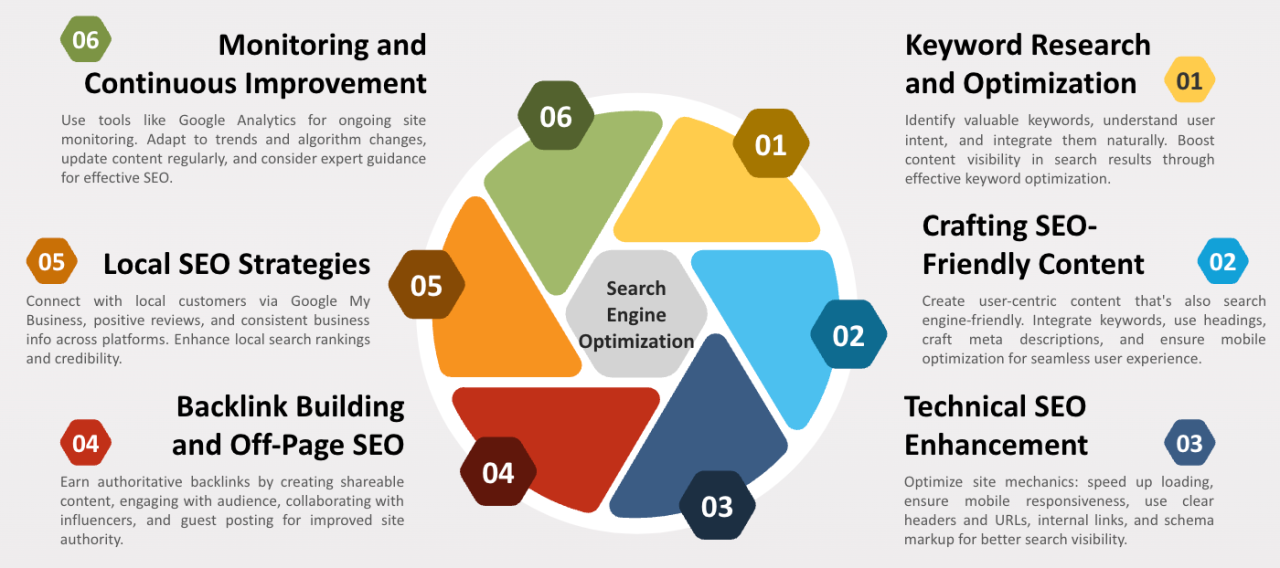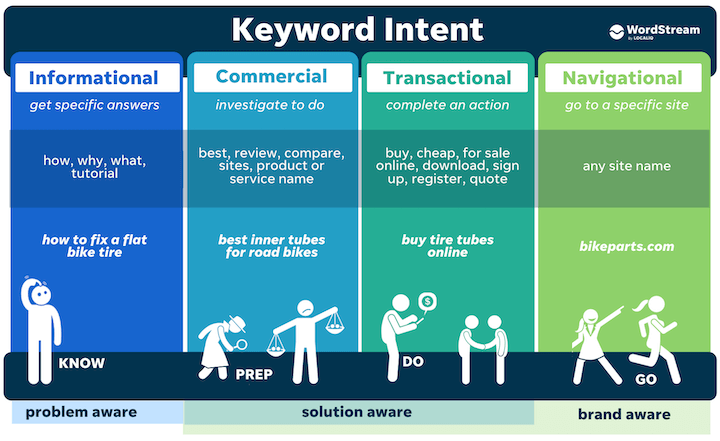Unlock the secrets to skyrocketing your SEO game with a deep dive into the art and science of effective keyword research.

Image courtesy of via DALL-E 3
Table of Contents
Introduction to Keyword Research
Keyword research is a crucial part of creating successful blog articles. It involves understanding and using the right words and phrases that people type into search engines when looking for information online. By incorporating these keywords effectively, writers can make their content more visible to a wider audience.
What is Keyword Research?
Keyword research is all about finding the words that people use when they search for things on the internet. Imagine you’re looking for a new video game online. You would probably type something like “best video games for kids” in a search engine. Those words you typed are keywords, and they help the search engine show you the most relevant results.
Why is Keyword Research Important?
Keyword research is essential for creating blog posts that people can easily find. When writers use the right keywords, their content is more likely to appear at the top of search engine results, which can bring in more readers. This practice, known as Search Engine Optimization (SEO), helps writers reach a wider audience and makes their content more successful.
Tools for Keyword Research
Keyword research is essential for creating successful blog articles that reach a wider audience. To help writers in this process, various tools are available to assist in finding the right keywords. These tools make keyword research easier, faster, and more effective. Let’s explore some of the tools that can be utilized for this purpose.
Free Keyword Research Tools
For beginners looking to start with keyword research, there are several free tools available that provide valuable insights. Tools like Google Keyword Planner, Ubersuggest, and Keyword Tool.io offer basic keyword suggestions, search volume data, and competition analysis at no cost. These tools are user-friendly and can help writers kickstart their keyword research efforts.
Popular Keyword Research Tools
Professionals often rely on advanced keyword research tools to delve deeper into finding the most effective keywords for their content. Tools like SEMrush, Ahrefs, and Moz Keyword Explorer provide in-depth keyword analysis, competitive research, backlink data, and more. These tools offer a comprehensive approach to keyword research, helping writers identify high-performing keywords with precision.
How to Identify Good Keywords
When we talk about search volume, we are referring to the number of times a specific keyword is searched for on search engines like Google. Imagine you are looking for a new video game to play, and you type “best adventure games” into the search bar. The number of people who search for this exact phrase gives us an idea of its search volume.

Image courtesy of www.linkedin.com via Google Images
Consider Keyword Relevance
Choosing relevant keywords is crucial for your blog post to reach the right audience. Think about what your article is about and what words someone might use to find it. For example, if you are writing about “easy cookie recipes,” using keywords like “simple cookie baking instructions” can be more relevant than just “cookies.”
Types of Keywords
Keywords play a crucial role in making your blog posts visible to your target audience on search engines. Understanding different types of keywords and how to use them effectively can significantly impact your blog’s success. Let’s explore two primary types of keywords commonly used in blog writing:
Short-tail Keywords
Short-tail keywords are brief and concise phrases that typically consist of one or two words. These keywords are broad and general, attracting a large volume of search traffic. While they may be highly competitive, incorporating short-tail keywords into your content can help drive significant visibility to your blog.
Long-tail Keywords
In contrast to short-tail keywords, long-tail keywords are longer and more specific phrases that target a narrower audience. These keywords are highly descriptive and detailed, aiming to capture users looking for specific information or solutions. While they may generate less traffic individually, long-tail keywords can result in higher conversion rates and attract more qualified visitors to your blog.
How to Analyze Competitor Keywords
Competitor analysis is an essential step in effective keyword research. By understanding what keywords your competitors are using, you can gain valuable insights into what works in your industry and how to improve your own keyword strategy. Here’s how to analyze competitor keywords:

Image courtesy of www.wordstream.com via Google Images
Identify Your Competitors
When looking to analyze competitor keywords, start by identifying who your competitors are. These are other websites or bloggers who write about similar topics or target the same audience as you. By knowing who your competitors are, you can start to uncover the keywords they are using to attract traffic.
Analyze Their Keywords
Once you have identified your competitors, it’s time to dive into analyzing their keywords. Look at the keywords they are targeting on their websites, in their blog posts, and even in their social media posts. Tools like SEMrush, Ahrefs, or even Google Keyword Planner can help you see the keywords your competitors are ranking for.
When analyzing their keywords, pay attention to both the short-tail and long-tail keywords they are using. Short-tail keywords are general search terms with a high search volume, while long-tail keywords are more specific and targeted. By looking at both types of keywords, you can get a comprehensive view of your competitor’s keyword strategy.
Using Keywords in Your Blog
Keywords are like secret codes that help search engines find your blog posts. Using the right keywords can make your content more visible to people who are searching for information online. Let’s learn how to effectively use keywords in your blog to attract more readers.
Keyword Placement
When creating a blog post, make sure to include your chosen keywords in strategic places. Put them in the title, headers, and naturally within the content. This will signal to search engines what your post is about and improve its chances of showing up in search results.
Avoid Keyword Stuffing
Avoid stuffing your content with keywords unnaturally. Search engines can penalize websites that engage in this practice, as it makes the content difficult to read and lowers its quality. Instead, focus on using keywords in a way that flows naturally within your writing.
Monitoring and Updating Keywords
After you’ve chosen your keywords and incorporated them into your blog posts, it’s essential to monitor how well they are performing. This involves using tools that can give you insights into the number of times your keywords are searched for and how much traffic they are driving to your content. By tracking keyword performance, you can see which words are bringing in more visitors and which ones might need tweaking.

Image courtesy of www.wordstream.com via Google Images
Update Keywords Regularly
Keywords are not set in stone. Trends change, search behaviors evolve, and new terms enter the lexicon. That’s why it’s crucial to update your keywords regularly to stay relevant. By staying on top of keyword trends, you can ensure that your content remains searchable and reaches the right audience. Don’t forget to also consider updating keywords based on any changes in your content focus or target audience.
Common Mistakes in Keyword Research
When conducting keyword research, one common mistake is targeting overly broad keywords. Imagine you are writing a blog post about healthy snacks for kids. Instead of using a general term like “snacks,” which is too broad and competitive, you should focus on more specific keywords like “nutritious snacks for picky eaters.” This way, you target a more defined audience and increase your chances of ranking higher in search results.
Ignoring Long-Tail Keywords
Another mistake to avoid is ignoring long-tail keywords. Long-tail keywords are longer and more specific phrases that users are likely to type into a search engine. For instance, instead of using the keyword “healthy snacks,” you could opt for a long-tail keyword like “easy and healthy snacks for after-school munchies.” By incorporating long-tail keywords into your content, you can attract more targeted traffic and stand out among competitors.
Conclusion
In this article, we’ve explored the art and science of effective keyword research, a crucial aspect of successful blog writing. By understanding the power of keywords and how they impact the visibility of your content on search engines, you can greatly enhance the reach and impact of your blog posts.

Image courtesy of www.nature.com via Google Images
Key Takeaways
Keyword research is not just about finding words; it’s about finding the right words that people are actively searching for online. By choosing relevant keywords with high search volume, you can attract more readers and improve your blog’s SEO ranking.
Utilizing tools for keyword research, whether free or popular, can streamline the process and provide valuable insights into the words and phrases that will resonate with your target audience. These tools make it easier to identify good keywords and optimize your content for maximum impact.
Remember to avoid common mistakes such as targeting overly broad keywords or ignoring long-tail keywords, as these missteps can hinder your blog’s success. By monitoring and updating your keywords regularly, you can stay ahead of trends and ensure your content remains relevant.
By implementing these strategies and best practices for keyword research, you are setting yourself up for success in the competitive world of blog writing. Keep honing your skills, experimenting with different keywords, and analyzing the performance of your content to continue growing your audience and achieving blog success.
Want to turn these SEO insights into real results? Seorocket is an all-in-one AI SEO solution that uses the power of AI to analyze your competition and craft high-ranking content.
Seorocket offers a suite of powerful tools, including a Keyword Researcher to find the most profitable keywords, an AI Writer to generate unique and Google-friendly content, and an Automatic Publisher to schedule and publish your content directly to your website. Plus, you’ll get real-time performance tracking so you can see exactly what’s working and make adjustments as needed.
Stop just reading about SEO – take action with Seorocket and skyrocket your search rankings today. Sign up for a free trial and see the difference Seorocket can make for your website!
Frequently Asked Questions (FAQs)
How Often Should I Do Keyword Research?
It is recommended to do keyword research regularly, especially before writing a new blog post. Depending on the competitiveness of your niche, you may want to revisit your keyword strategy every few weeks or months to stay updated with trending topics and keywords. By keeping your keyword research fresh and relevant, you can improve your chances of ranking higher in search engine results.
Can I Use the Same Keywords for Different Articles?
While it’s okay to use the same keywords across different articles on your blog, it’s essential to ensure that each post provides unique and valuable content. Using the same keywords can help establish consistency and build authority on a specific topic. However, avoid duplicating content or keyword stuffing, as search engines may penalize such practices. Instead, focus on creating high-quality, informative content that naturally incorporates your chosen keywords.







